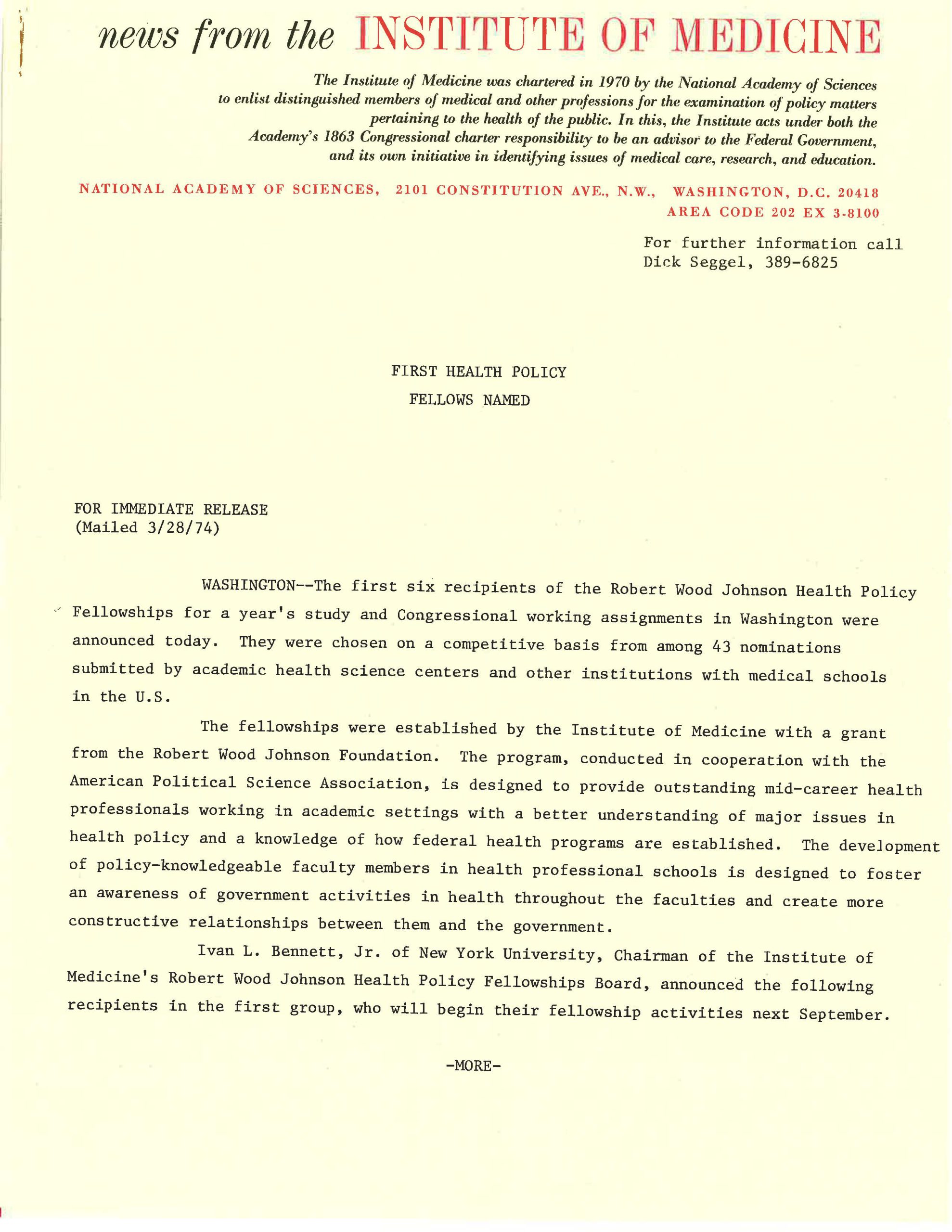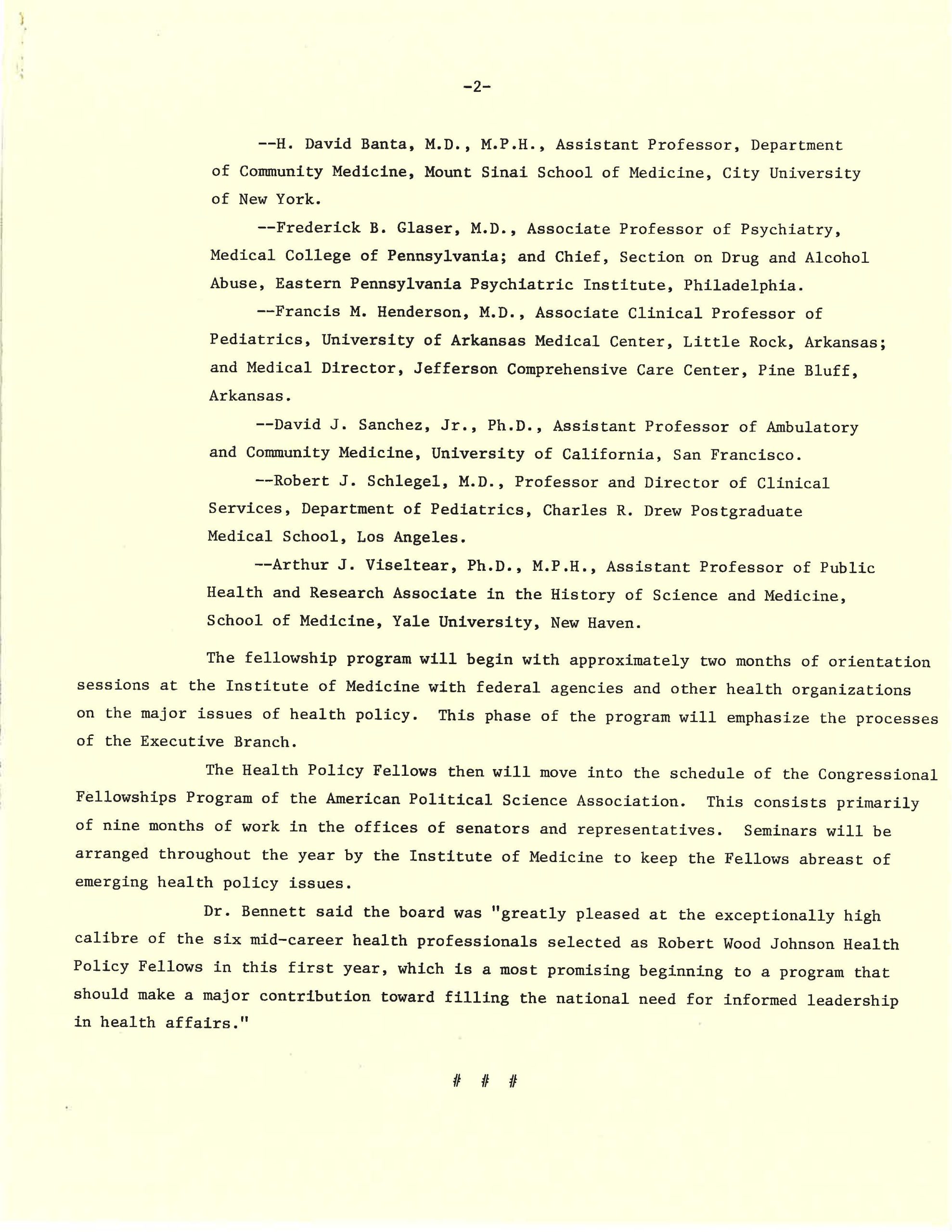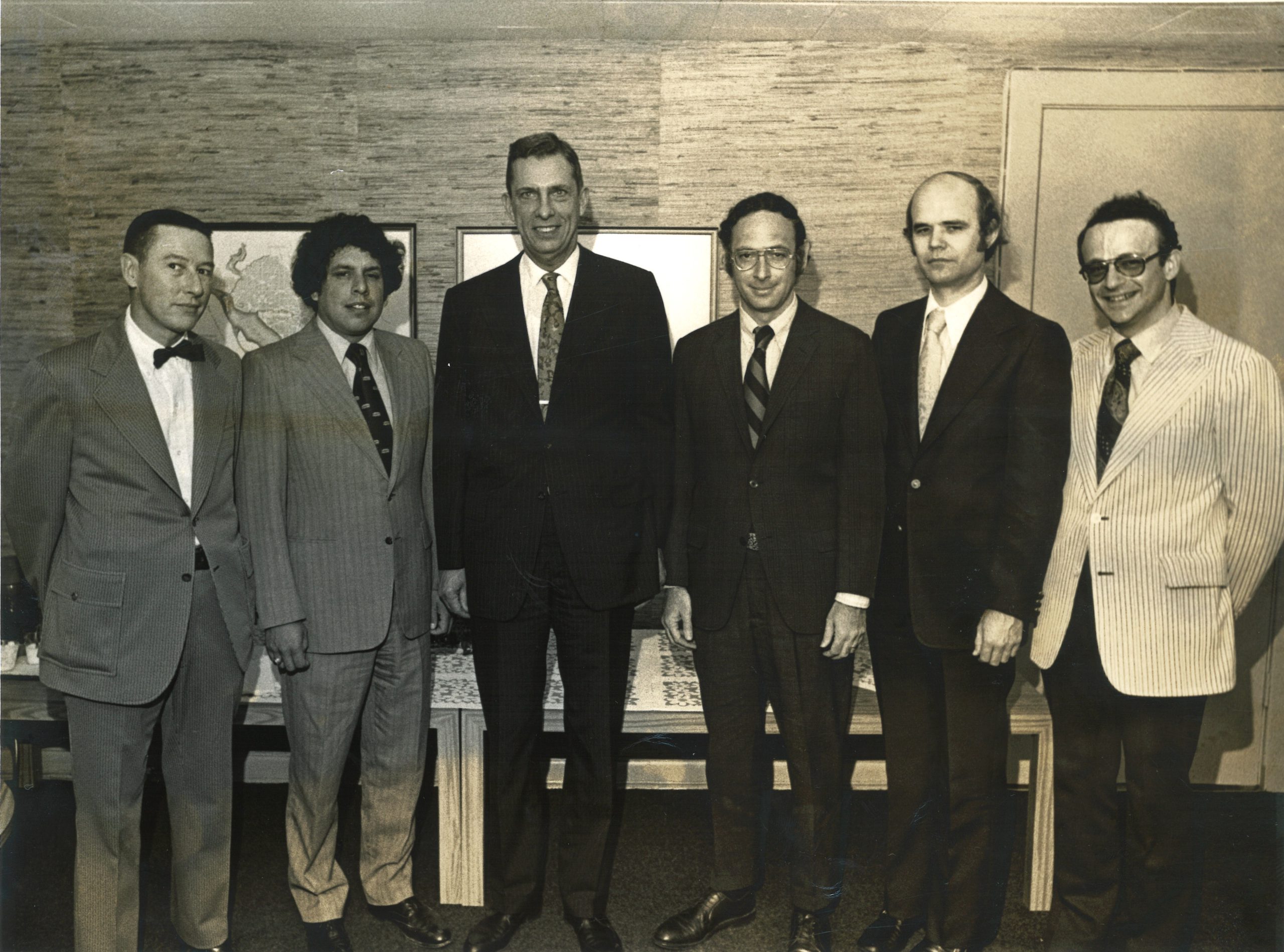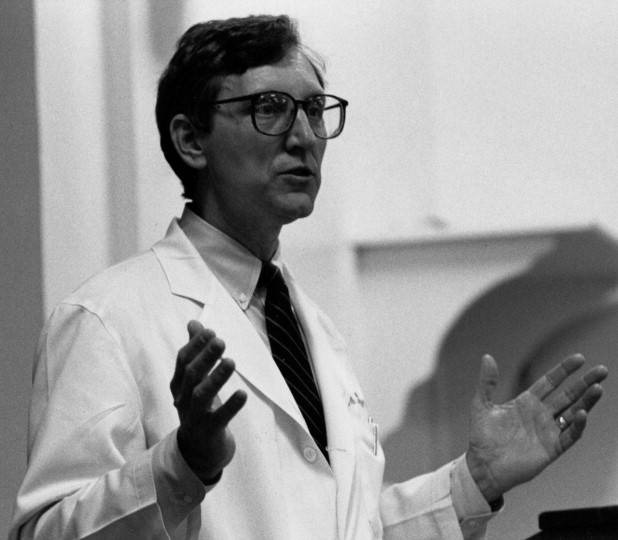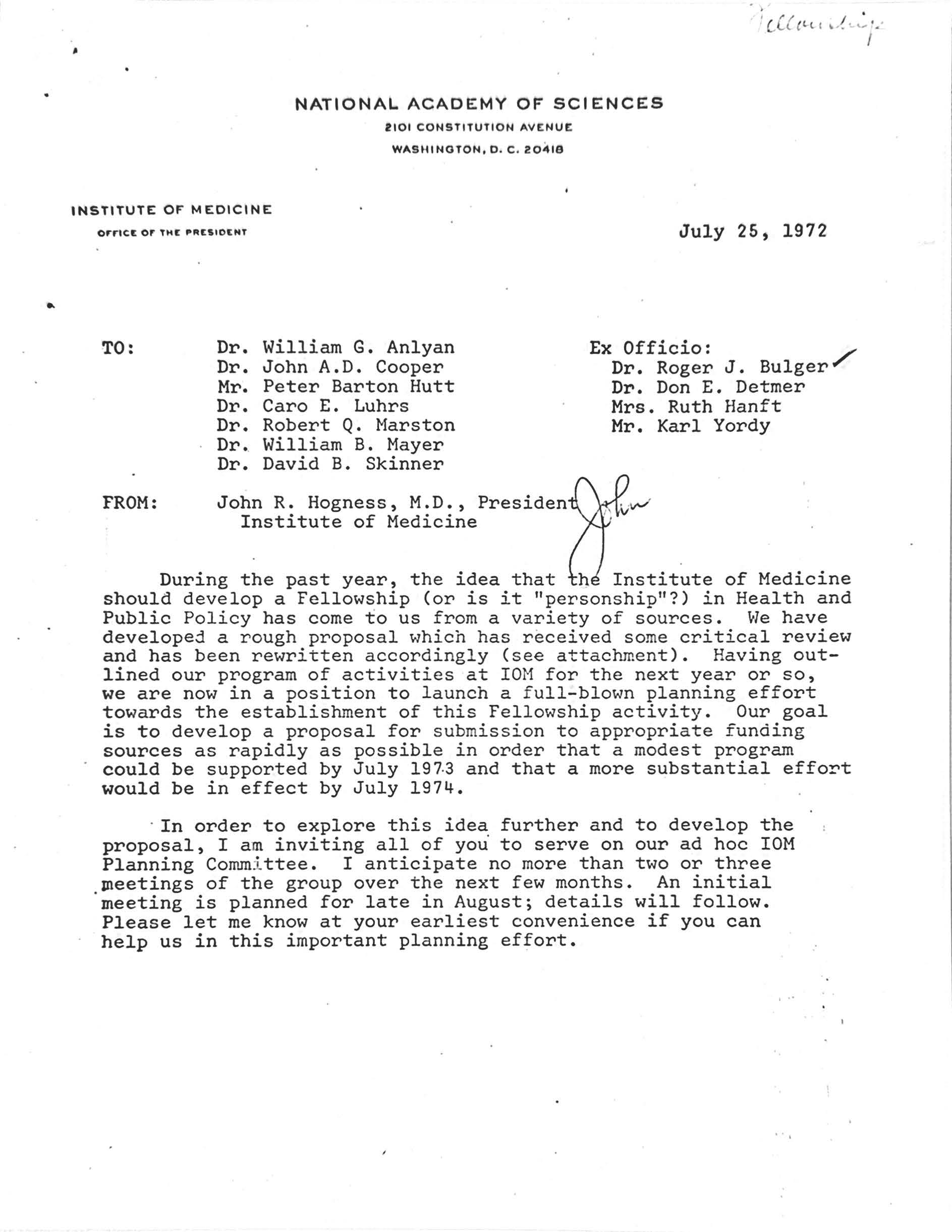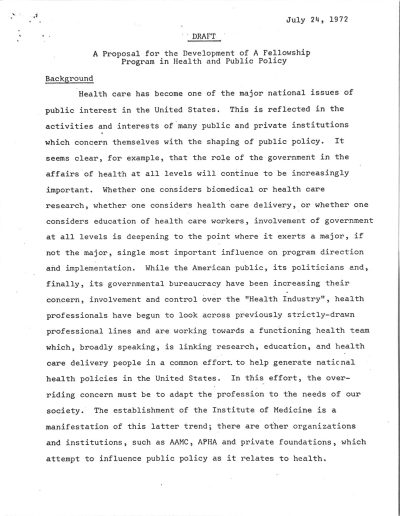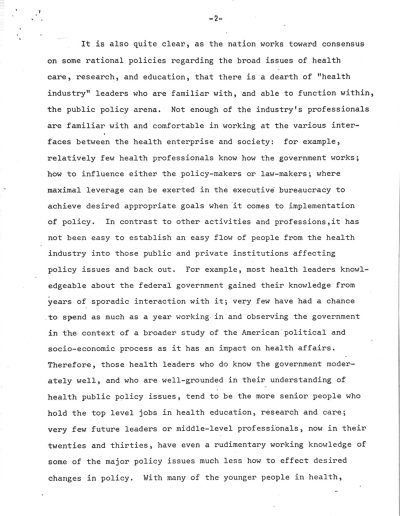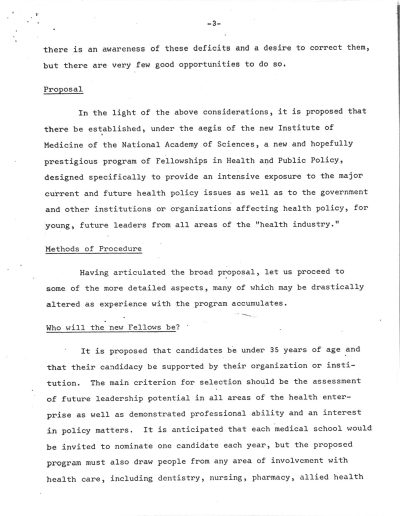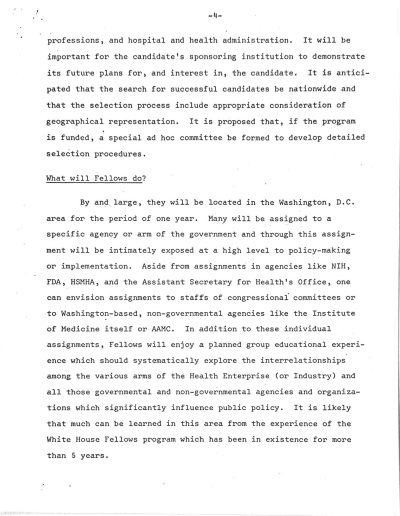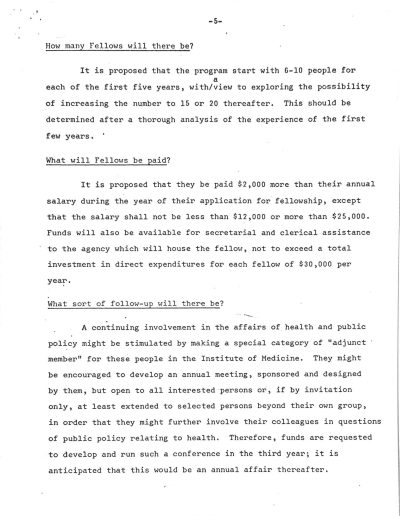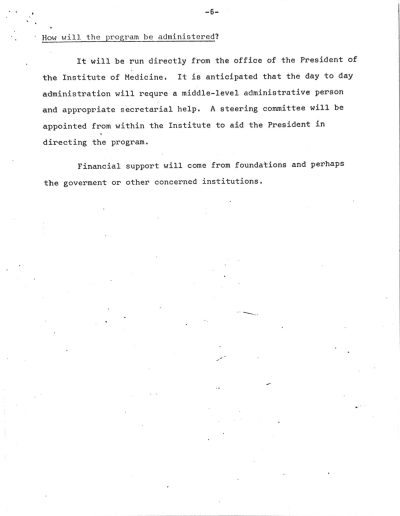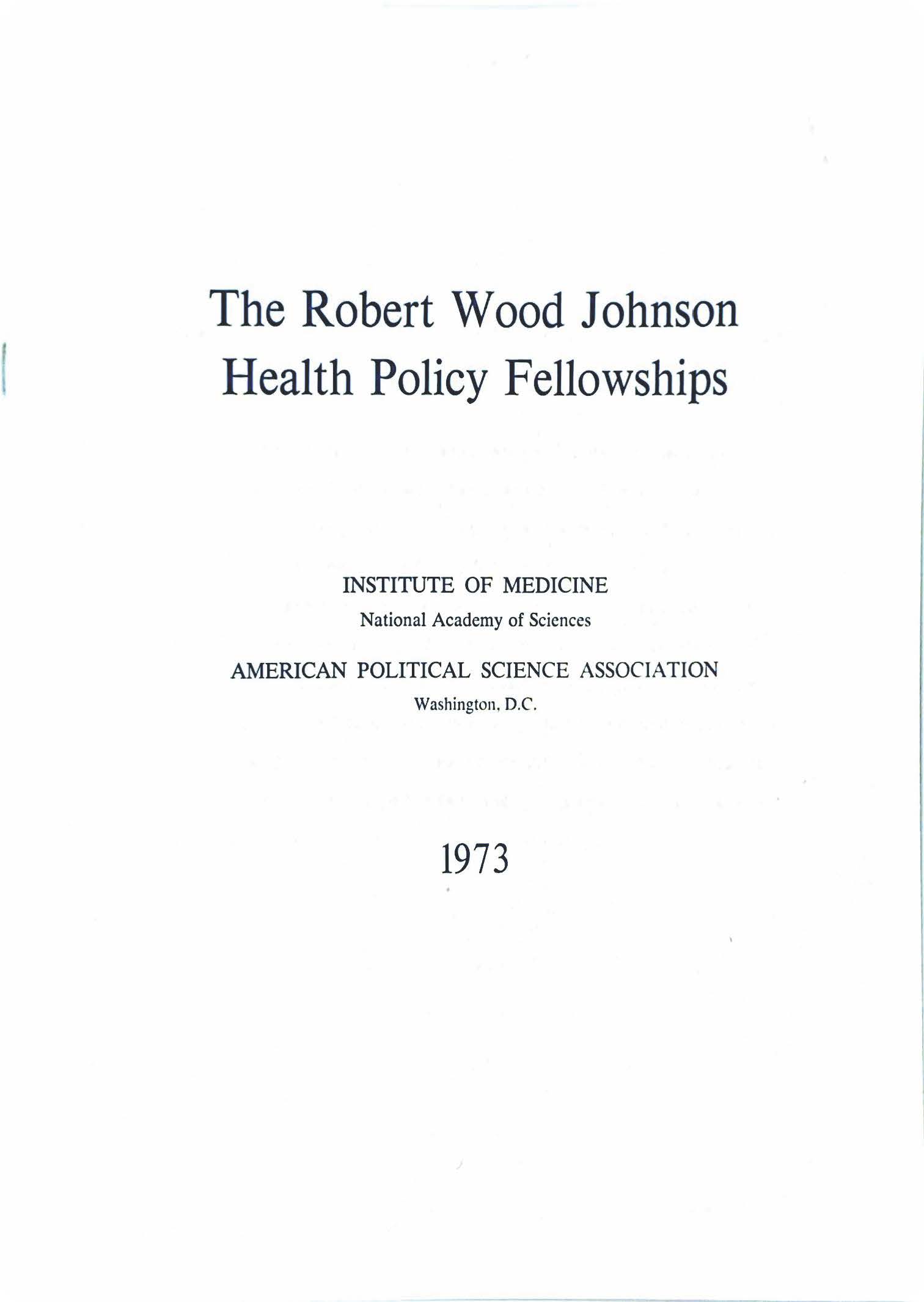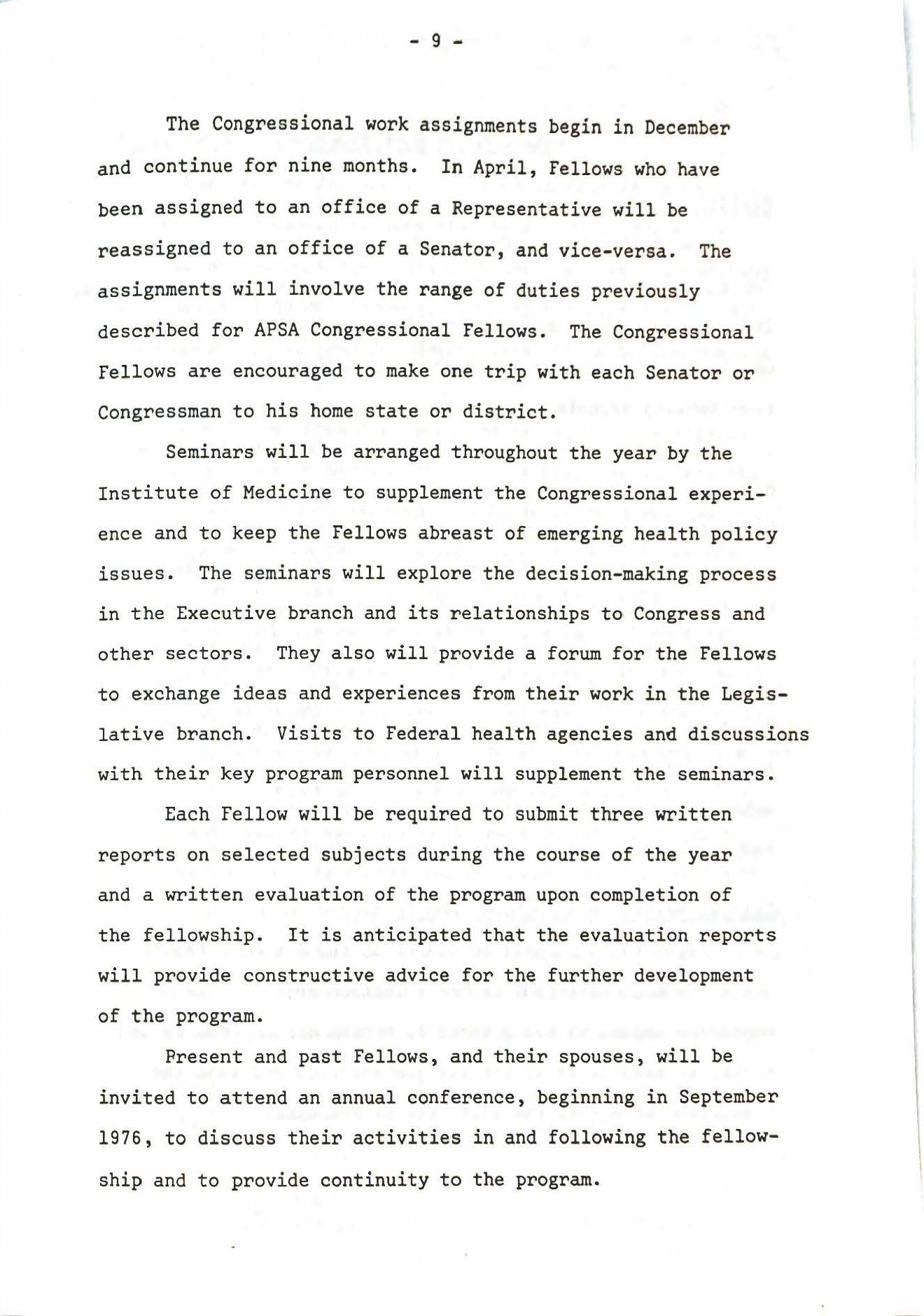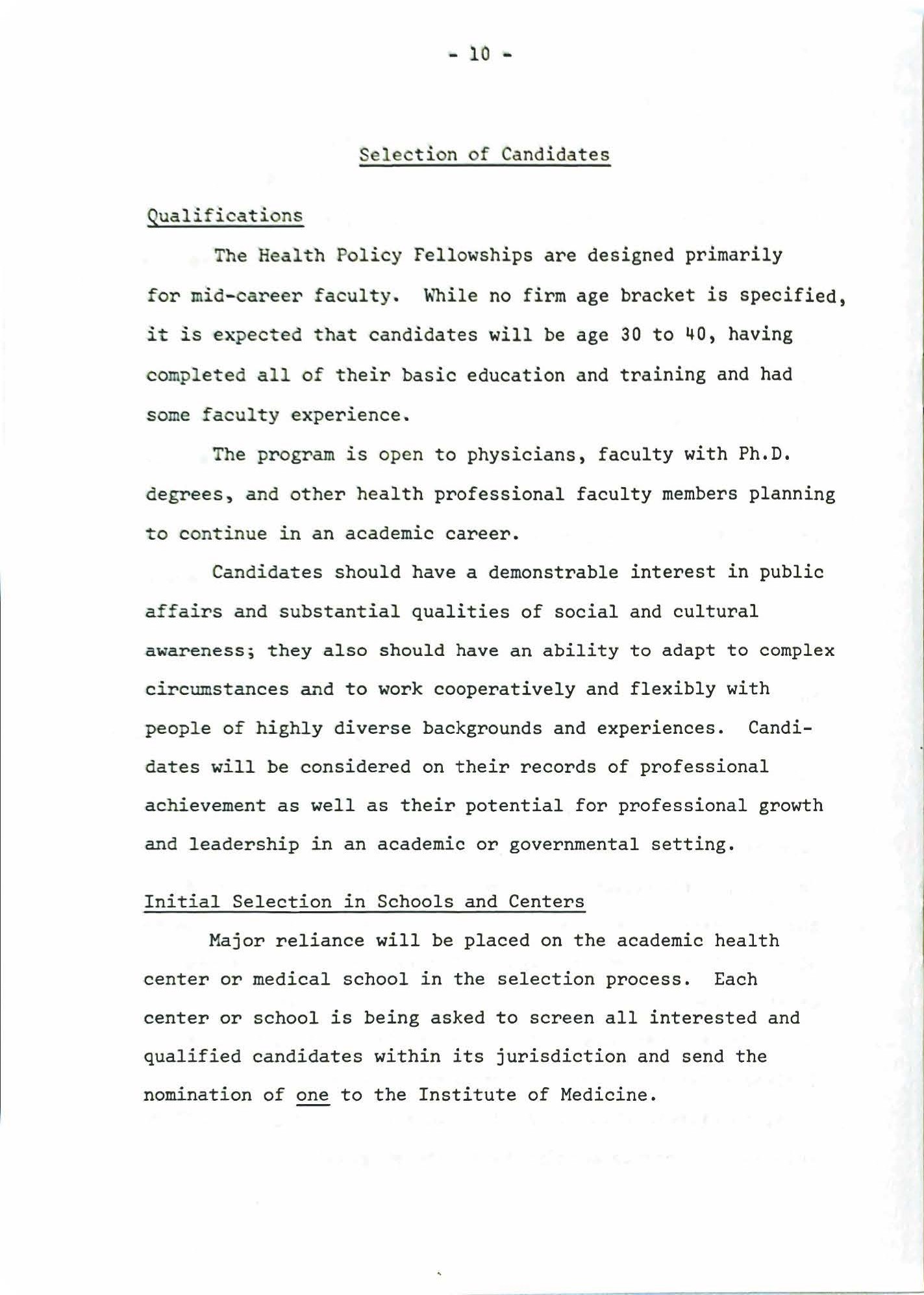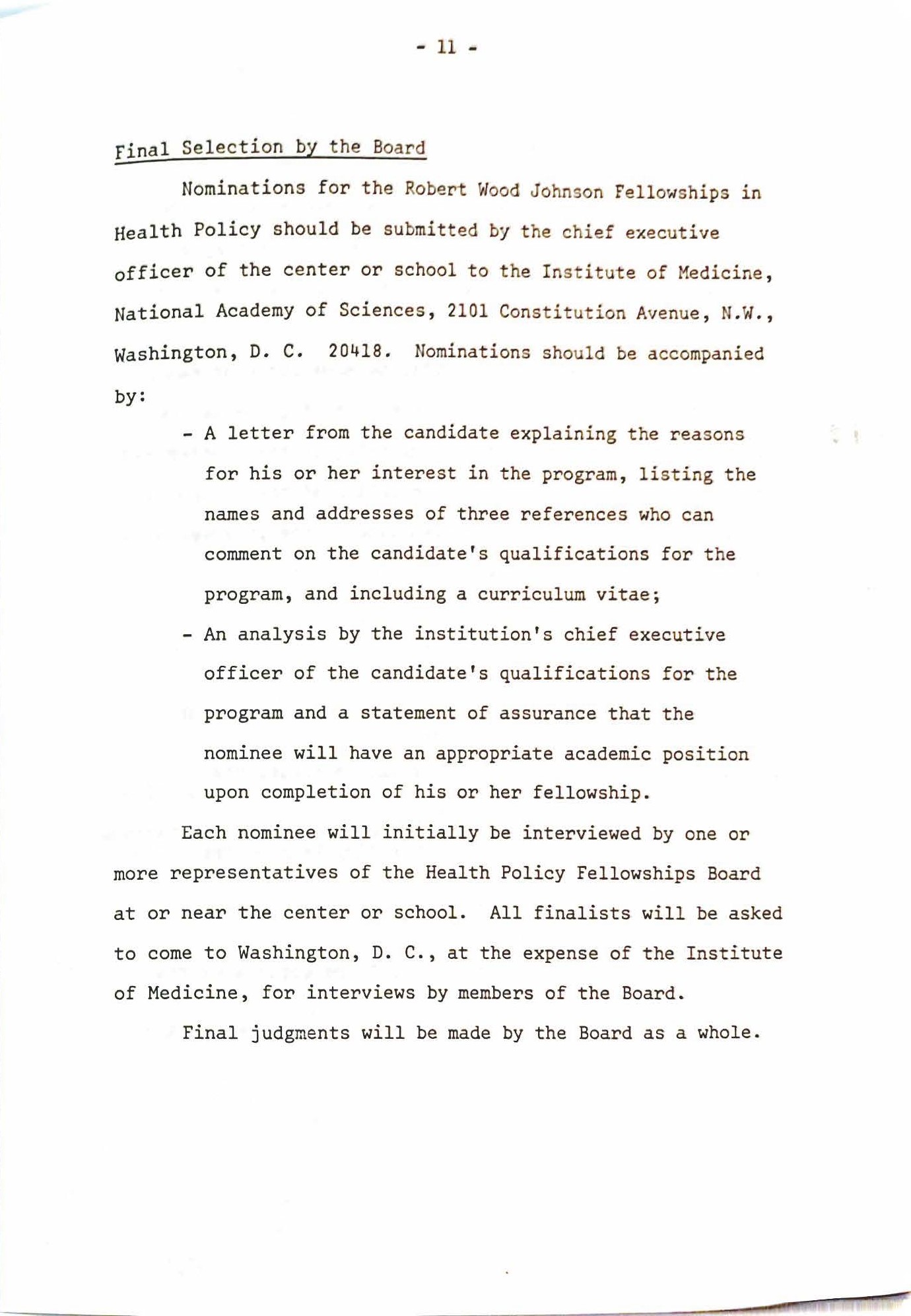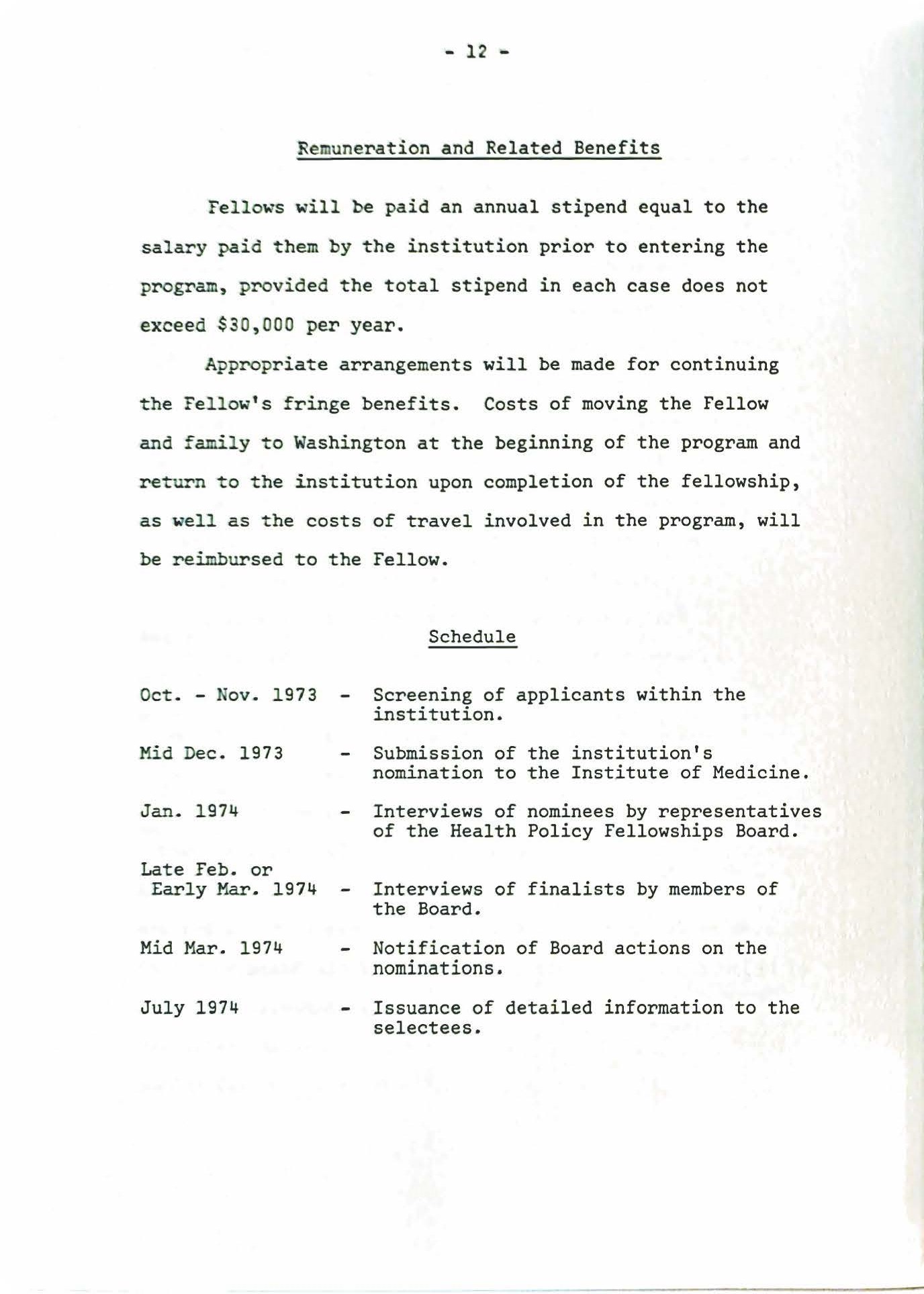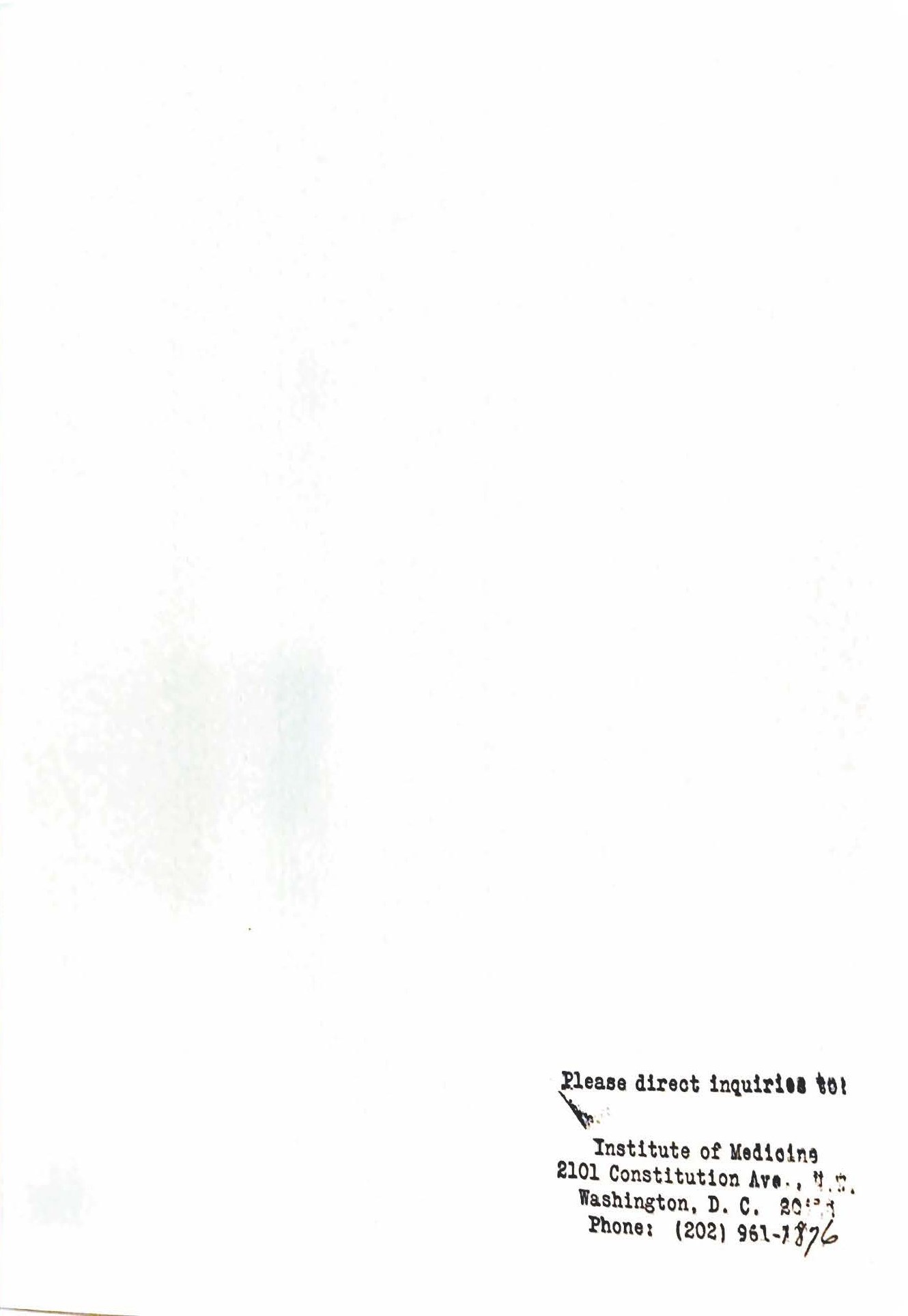50 Years of Impact
The Robert Wood Johnson Foundation (RWJF) is striving to build a national Culture of Health where everyone has the opportunity to live a healthier life. The RWJF Health Policy Fellows program, which seeks to build and maintain strong and diverse leadership and a workforce skilled in health policy, is critical to that vision. For over 50 years the RWJF HPF program has had an enormous impact on the legislative landscape, health climate, and lives of the American people.
Site Introduction
Your content goes here. Edit or remove this text inline or in the module Content settings. You can also style every aspect of this content in the module Design settings and even apply custom CSS to this text in the module Advanced settings.

Early History
An IOM Fellowship in Health Policy
In January 1972, Dr. Don Detmer reached out to IOM president Dr. John Hogness to express his interest in spending a year at the Institute of Medicine. At this point, the IOM was still a fledgling organization. It had officially launched operations in December 1970 and had only announced its inaugural membership seven months earlier. In a 2024 interview, Detmer recalled that he met with Hogness so early in the IOM’s life that “[Hogness] was unpacking his boxes in his office when [they] met.”
In a letter to Dr. Hogness, Detmer explained his goals for the proposed fellowship year:
First, I would like an opportunity to make first-hand observations of accomplished individuals grappling with important social and medical issues of the day. A willingness on your part to let me attend the Institute’s staff sessions as well as Executive Committee meetings would be essential to achieve this end.
Secondly, as I mentioned, I have no formal training in management and observing the development of the Institute in its neo-natal period would offer intimate exposure to organizational evolution and decisionmaking relative to this. Also, with some assistance, I would. enjoy an opportunity to develop the agendas for two or so committee meetings for some expertise in favorable member selection and stimulating program development.
Thirdly, I desire an opportunity to make meaningful input into the projects of the Institute that most appeal to me. A brief outline of projects you mentioned make this appear to be no great hurdle. The possibility of working closely with your planning expert in the development of background data looks very fascinating. With a sincere interest in long range health strategy, such exposure might make a very solid educational contribution to my background.
Don Detmer, circa 1972. (Science Direct)
In the summer of 1972, Don Detmer started a one-year “proto-fellowship” at the Institute of Medicine.
Shortly after Dr. Detmer began his proto-fellowship, Dr. Hogness convened a planning committee to discuss the creation of a fellowship in health and public policy.
Hogness attached a proposal to his request, which stated:
Health care has become one of the major national issues of public interest in the United States… It seems clear, for example, that the role of the government in the affairs of health at all levels will continue to be increasingly important. Whether one considers biomedical or health care research, whether one considers health care delivery, or whether one considers education of health care workers, involvement of government at all levels is deepening to the point where it exerts a major, if not the major, single most important influence on program direction and implementation…
It is also quite clear, as the nation works toward consensus on some rational policies regarding the broad issues of health care, research, and education, that there is a dearth of “health industry” leaders who are familiar with, and able to function within, the public policy arena. Not enough of the industry’s professionals are familiar with and comfortable in working at the various inter faces between the health enterprise and society…
In the light of the above considerations, it is proposed that there be established, under the aegis of the new Institute of Medicine of the National Academy of Sciences, a new and hopefully prestigious program of Fellowships in Health and Public Policy, designed specifically to provide an intensive exposure to the major current and future health policy issues as well as to the government and other institutions or organizations affecting health policy, for young, future leaders from all areas of the “health industry.”
1972 Fellowship Proposal
Partnering with the Robert Wood Johnson Foundation (RWJF)
In December 1972, John Hogness halted the creation of an internal IOM fellows program after learning that the Robert Wood Johnson Foundation wants to sponsor a Public Policy Fellowship Program in Health.
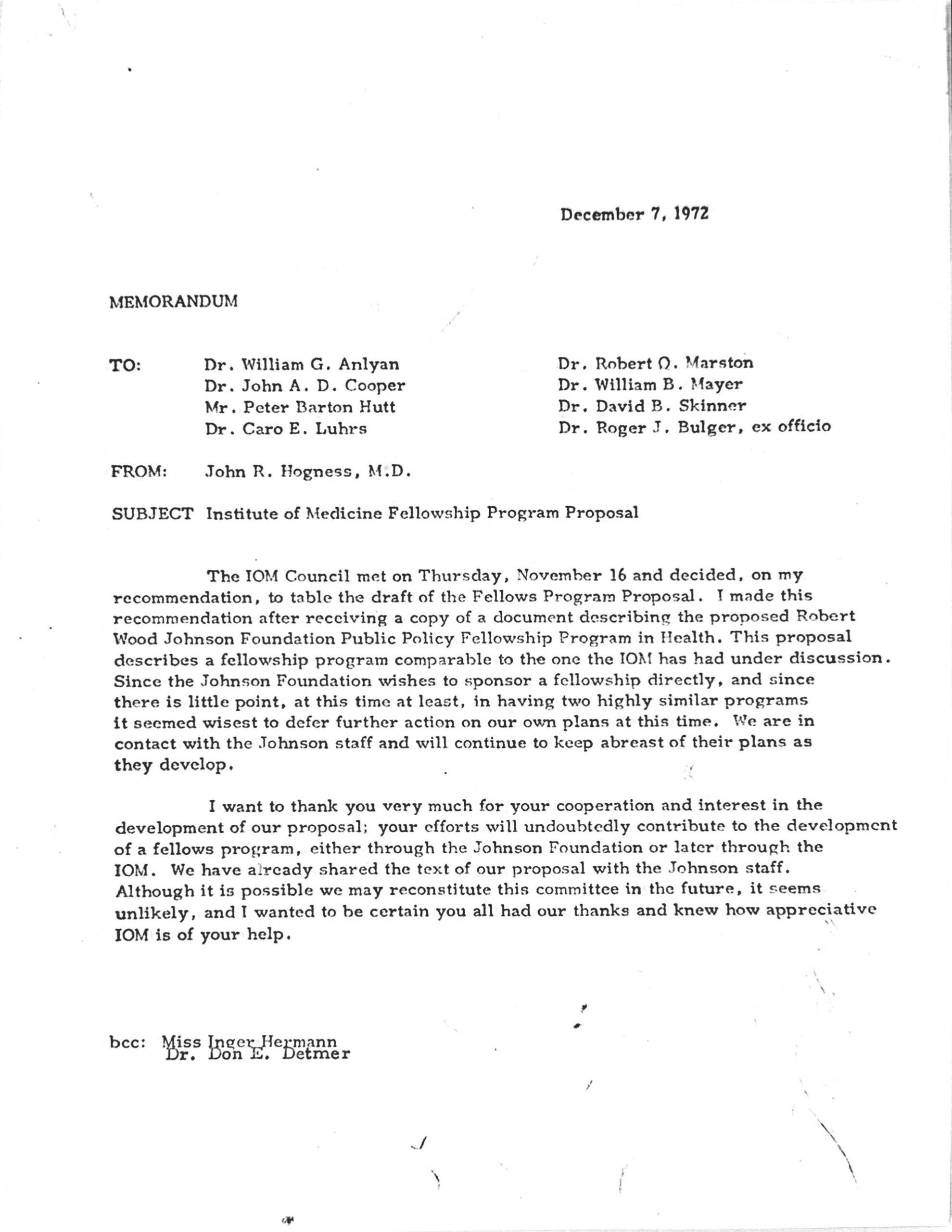
In the meantime, Hogness sent Don Detmer, on behalf of IOM, to RWJF to discuss the possibility of a collaborative health policy fellowship program. Together, the RWJF and the IOM designed a health policy fellowship program, a program that has lasted and thrived for more than 50 years with over 300 fellows in more than 125 diffeerent placement offices.
Selecting the First Six Fellows
In the summer of 1973, the IOM sent more than 3,000 program brochures to academic institutions, members of Congress, agencies of the Executive Branch, and related health organizations to announce the fellowship. In addition, President John Hogness sent invitations to 114 academic health centers and medical schools asking for nominations of candidates. By the end of December 1973, 43 institutions had submitted a nomination.
At its January meeting, the Health Policy Board narrowed the 43 nominations to 12 finalists who they invited to Washington, D.C. for interviews in March.
The first program brochure, 1972. (NASEM Archives)
On March 28, 1974, the Institute of Medicine officially announced the selection of the first six Robert Wood Johnson Health Policy Fellows.
